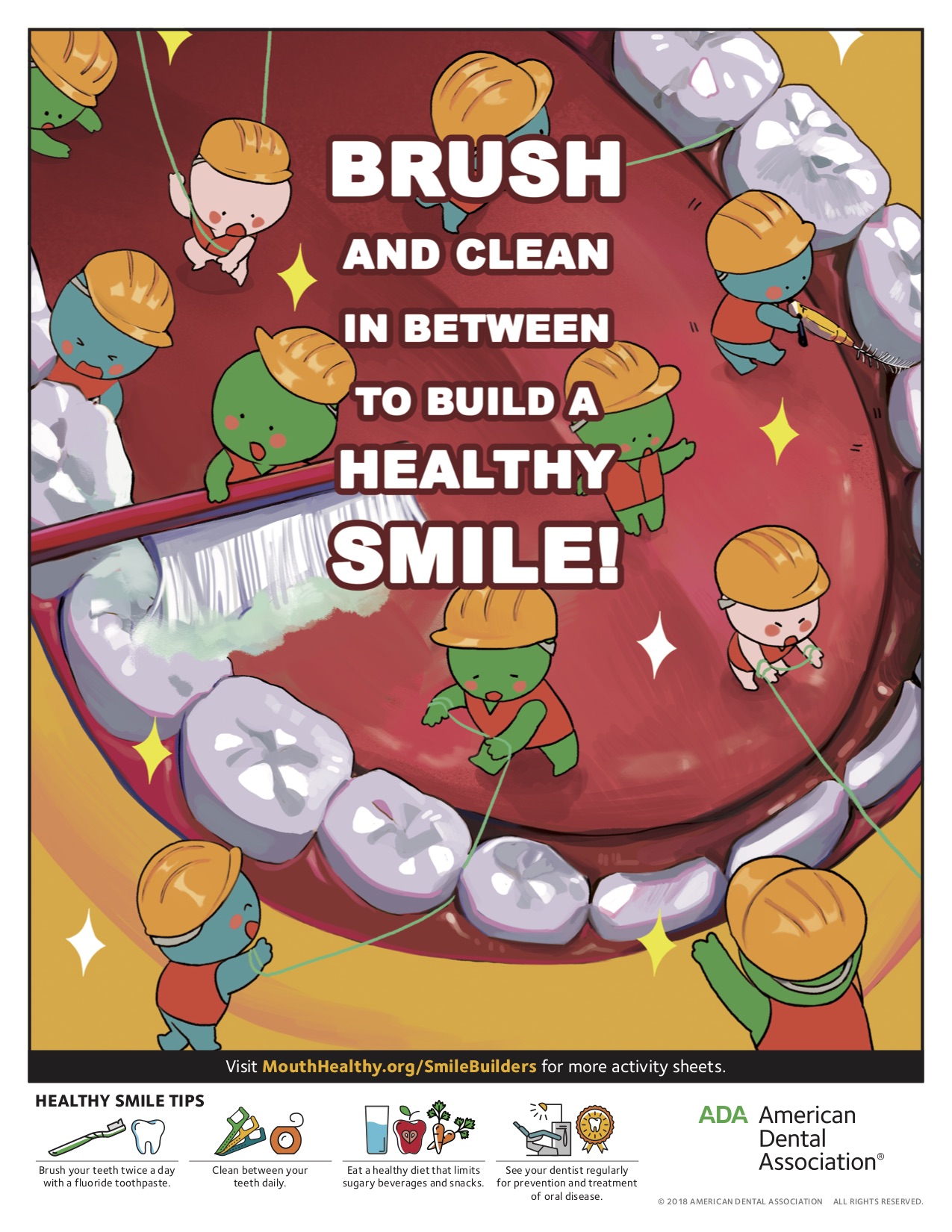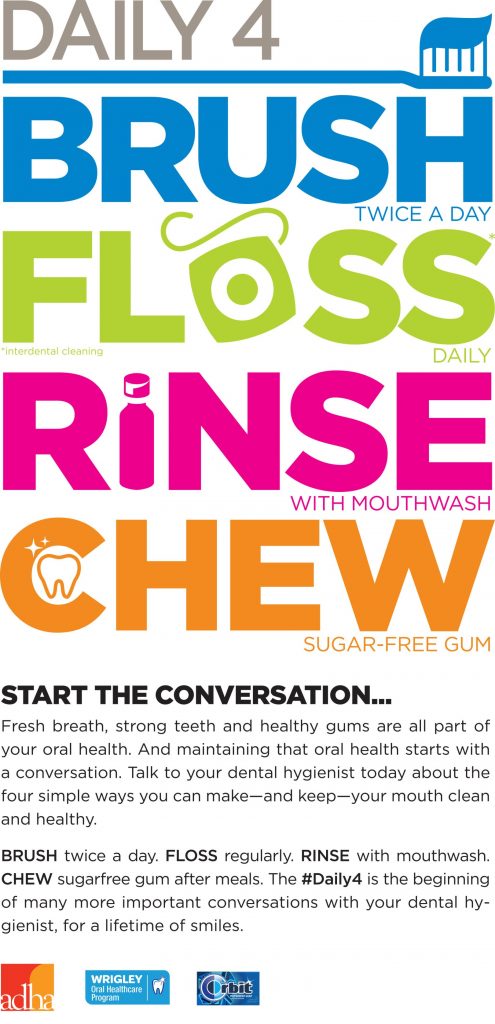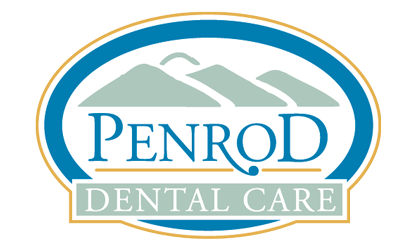Ask the Dentist is a question-and-answer service hosted by Dr. Carey Penrod, DDS. Submit your question about oral health, dental procedures, cosmetic dentistry, or anything related to dentistry and Dr. Penrod will answer! (Be sure to read the Ask the Dentist Terms of Service.)
Employee Appreciation!
We have 40 employees at our office and we are so grateful for how hard each one works to bring the best quality to Penrod Dental Care. They help make every patient feel comfortable and cared for. Thank you for giving 100% every day!

National Children’s Dental Health Month
February is National Children’s Dental Health Month and this year’s slogan is “Brush and clean in between to build a healthy smile.” We love children in our office so bring them in and we’ll make sure their teeth are on the right track.
Attitudes and habits established at an early age are critical in maintaining good oral health throughout life. By participating in the annual celebration of National Children’s Dental Health Month, members of the dental team, parents, teachers and others can help keep children’s smiles beautiful now and for years to come.
Visit the American Dental Association for fun activity sheets for kids!
Holiday Tips for Your Teeth
Follow these 5 tips to keep your smile merry and bright this holiday season!
- Don’t use your teeth as a tool! – Be sure to use the right tools to open presents and boxes, remove stubborn bottle caps, and crack open nuts. Using your teeth can cause tooth and gum damage and may even crack your teeth.
- Avoid sugary drinks and use a straw – Try to switch your sodas to carbonated waters. If you must drink soda, use a straw to try and keep the acid of your teeth. Be sure to brush afterward!
- Limit the Grazing – We tend to leave trays of food and treats out all day long during the Holidays. Try to bring food out only at meal times.
- Healthy Foods to fill up on – Turkey is a great source phosphorus and protein – both of which can help your body fight tooth decay and keep your teeth strong and healthy. Filling up on veggies high in Vitamin A, like carrots and broccoli, can also help strengthen your enamel.
- Smart Stocking Stuffers – Instead of adding another candy cane or chocolate Santa Christmas, throw in some floss and a new toothbrush to fill the stockings!
Happy Holidays!

Dreaming of a White Christmas?
$99 Holiday Teeth Whitening Special!
Give the gift of a brilliant smile with our $99.00 Whitening Special for yourself or a loved one! Call today to make your appointment for custom whitening trays. The appointment only takes about 20 minutes of your time! Order a Whitening Gift Certificate and we’ll mail your loved one a special voucher good for free teeth whitening at Penrod Dental Care!
Gift certificates are available through December 31st (good for one year) so don’t wait until it’s too late!
Tips for a Healthy Halloween
The American Dental Association has some great tips for having a healthy Halloween. Below are a few to remember!
Time It Right
“Snacking on candy throughout the day is not ideal for your dental health or diet,” Dr. Ferraz-Dougherty says. Eat Halloween candy (and other sugary foods) with meals or shortly after mealtime. Saliva production increases during meals. This helps cancel out acids produced by bacteria in your mouth and rinse away food particles.
Choose Candy Carefully
Avoid hard candy and other sweets that stay in your mouth for a long time. Aside from how often you snack, the length of time sugary food is in your mouth plays a role in tooth decay. Unless it is a sugar-free product, candies that stay in the mouth for a long period of time subject teeth to an increased risk for tooth decay.
Avoid Sticky Situations
Sticky candies cling to your teeth. The stickier candies, like taffy and gummy bears, take longer to get washed away by saliva, increasing the risk for tooth decay.
Have a Plan
It’s tempting to keep that candy around, but your teeth will thank you if you limit your stash. “Have your family pick their favorites and donate the rest,” Dr. Ferraz-Dougherty says. “Look for organizations that help you donate candy to troops overseas, like Operation Gratitude.”

https://www.mouthhealthy.org/en/az-topics/h/halloween-tips?platform=hootsuite
October is National Dental Hygiene Month!
We are so grateful for our awesome hygienists at Penrod Dental Care that help care for our patients. Thank you for everything you do!

Do I need to get my wisdom teeth removed?

Although some people never get any wisdom teeth at all, those who do often experience problems with them. If you visit your our office and you still have your wisdom teeth, chances are that our dentist will recommend removing them.
Why do we even have wisdom teeth?
Wisdom teeth are thought to be leftovers from an early stage of evolution. Regular dental care often involves extracting wisdom teeth since there is no advantage to having them. Getting rid of wisdom teeth prevents pain, cysts, infections, and other complications.
Visit our office to confirm if you need wisdom teeth removed and we will refer you to one of our great oral surgeons!
What are sealants?
A sealant is a protective coating that can help protect your back teeth. It’s important to still brush and floss daily, but sealants can help to prevent cavities. Sealants have been shown to reduce the risk of decay by nearly 80% in molars. According to the Center for Disease Control, “school-age children without sealants have almost three times more cavities than children with sealants.”
Who should get sealants?
Children and adults can benefit from sealants, but the earlier you get them, the better. Your first molars appear around age 6, and second molars break through around age 12. Sealing these teeth as soon as they come through can keep them cavity-free from the start!
Call us today to see if sealants are right for you and your family!
To learn more about sealants click here: https://www.mouthhealthy.org/en/az-topics/s/sealants?source=promospots&content=topstories&medium=sealants
When should you wear a mouthguard?
 Mouthguards should be a standard part of your athletic uniform! Collision and contact sports are at a higher-risk for mouth injuries, but dental injuries can also happen in non-contact sports.
Mouthguards should be a standard part of your athletic uniform! Collision and contact sports are at a higher-risk for mouth injuries, but dental injuries can also happen in non-contact sports.
Mouthguards usually only cover the upper teeth. Your bottom teeth are generally protected since they are further back. Your dentist can make a custom-made mouthguard that is comfortable and a perfect fit for you. Mouthguards can also work with braces and will help protect the cheek, gums, and lips along with the teeth.
To learn more about mouthguard care and replacement give us a call or click here: https://www.mouthhealthy.org/en/az-topics/m/mouthguards?utm_source=mouthhealthyorg&utm_medium=mhtopstories&utm_content=mouthguards
What does a cavity feel like?
 Sometimes people feel like they have a cavity when they don’t, and others may have cavities and not even know it! In the earliest stages of a cavity, there may be no symptoms. There are no nerves in your tooth’s enamel, so when the decay is in that layer, it’s likely that you won’t feel a thing. Once the decay has progressed enough to reach the softer tissues inside the tooth, you might experience some symptoms.
Sometimes people feel like they have a cavity when they don’t, and others may have cavities and not even know it! In the earliest stages of a cavity, there may be no symptoms. There are no nerves in your tooth’s enamel, so when the decay is in that layer, it’s likely that you won’t feel a thing. Once the decay has progressed enough to reach the softer tissues inside the tooth, you might experience some symptoms.
- Your teeth might feel sensitive
- You might feel some pain after eating sweets, hot foods or cold foods. The pain might be fairly mild or it might be sharp and intense.
- You may feel pain when you bite down
- Cavities sometimes create visible holes in the teeth.
- Cavities may create stains that are black, brown or white on the surface of the tooth.
What should you do if you think you have a cavity? See your dentist! Although cavities can be reversed in the early stages, by the time you are feeling discomfort or pain, only a dentist can treat them. An x-ray will be taken to determine how the cavity has progressed into the tooth. Depending on how severe the cavity is, you might need a filling to fix it. If the decay is very severe, the dentist might replace the tooth with a crown or perform a root canal.
Even if you’re not sure if you have a cavity, regular professional cleaning and dental visits are important. As with many conditions, when it comes to cavities, taking preventative steps is a lot easier than treating the problem down the road.
https://www.colgate.com/en-us/oral-health/conditions/cavities/what-does-a-cavity-feel-like-0716


